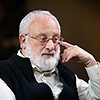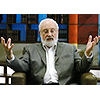Audio Version Of The Blog – 12.07.16
Listen to an Audio Version of the Blog
Download: MP3 Audio

Listen to an Audio Version of the Blog
Download: MP3 Audio
 Question: Sometimes a person thinks that real things happen with him, but then he wakes up and understands that it was just a dream. What is reality and what is illusion?
Question: Sometimes a person thinks that real things happen with him, but then he wakes up and understands that it was just a dream. What is reality and what is illusion?
Answer: There is only one reality—the upper force. To the extent that we reveal that force, we exist in reality. If we do not reveal the upper force, it means that we remain in illusion.
It follows that our current state, in which the upper force is hidden from us, is an illusion. It is written in “Introduction to The Book of Zohar” that the entire world that we see in front of ourselves is only our fantasy, but a highly complicated one, you can even say, a tricky one.
Actually, as the wisdom of Kabbalah explains, we do not see the reality in front of us, but rather imagine it within ourselves. And it seems to us that this internal fantasy actually exists, and it is outside of us.
Imagine that everything we see around us, everything we feel, hear, and breathe, all the impressions in our five senses essentially exist within us. And not inside the body, because it is an illusion too, but in the organ of perception called the will to receive pleasure. This desire includes sight, hearing, smell, taste, and touch.
In essence, we detect not what occurs outside but what happens inside these senses. Sight, smell, taste, hearing, and touch are five levels of internal impressions within in us, meaning in the will to receive pleasure. By reacting to waves and fluids that enters it, the will to receive imagines the reality it supposedly exists in.
It is almost like putting on the 3D glasses and seeing yourself in the forest or outer space. Only these glasses are permanent, implanted within us. Through them, we discover our imaginary reality. But it is indeed “ours,” as we have become so accustomed to and united with it that we can not separate ourselves from it.
Kabbalists reveal the true reality existing not inside of us, like the imaginary one, but outside of us. This upper reality, the upper force, is called the “Creator” (Boreh) because it means two actions: “come” (Bo) and “see” (Reh) Him. And then we see that as the upper force governs all reality, which is in fact the will to receive pleasure.
The upper force is the desire to delight, to bestow. By revealing it, we discover how this force fills the entire universe, the entire creation, meaning the will to receive, to be fulfilled.
Question: Do we feel the upper reality with the same senses of sight, hearing, smell, taste, and touch?
Answer: We feel the upper reality in the five senses called Keter, Hochma, Bina, Zeir Anpin, and Malchut. It is the higher form of perception than the ordinary sight, hearing, smell, and touch.
Question: Does it feel as a true reality?
Answer: It feels much stronger than our current one.
[196380]
From a TV Program “A New Life,” No. 787, 11/01/2016
Related Material:
On The Other Side Of Perception
Films About Spiritual Reality
The Whole World Is Inside Us
 Question: When does a person begin to study the wisdom of Kabbalah?
Question: When does a person begin to study the wisdom of Kabbalah?
Answer: When attainment of the Creator becomes the central desire in his life and everything else is only for discovering the Creator within this desire.
Question: You said, “to some extent, a Kabbalist perceives everything that exists in the universe as his own. For the most part, it is humanity’s desire that he feels as his own.
“And it is not easy at all. This imposes a big change in his impressions of the world, brings corresponding reactions within him.”
Does this mean that the existence of the two main Mitzvot (commandments), to love the Creator with all your heart and mind, basically means that you must learn to love yourself? In fact, does this mean that you are fulfilling the Mitzva, “And you shall love your friend as yourself” (Leviticus 19:18), and this is what it means to be filled with the Upper Light?
Answer: Generally yes, even though it is possible to interpret these words in different ways.
[197529]
Related Material:
Answers To Your Questions, Part 153
Answers To Your Questions, Part 152
Answers To Your Questions, Part 151
 Question: What is the transformation of a girl to a woman on a spiritual level?
Question: What is the transformation of a girl to a woman on a spiritual level?
Answer: It is very hard to explain from a Kabbalistic perspective what it means when a girl becomes a woman, which is when she loses her virginity. This is a special Masach (screen) of the attributes of NHY.
This phenomenon is characteristic only of humans. As we know, animals have no hymen. But this is not what makes a girl a woman, it is the internal independence that emerges in a girl, who then becomes a teen, and then a woman.
It is the work on herself and, of course, the desire to give birth, to have a family, to unite with her husband, to have children around her, and to care for the family nest.
On the spiritual level, it is a very serious growing process, possible only when the female part takes on the attributes of the male part and turns them into female attributes. Malchut takes the last four Sefirot from Zeir Anpin and turns them into her ten Sefirot. In any case, the relations between men and women have to be good.
But everything is fulfilled only under the influence of the Upper Light and not by us. Therefore, we should not make anything up. We should use the method of Kabbalah and be happy.
[196685]
From the Kabbalah Lesson in Russian 6/9/16
Related Material:
From Adam’s Rib
The Spiritual Meaning Of Virginity
An Action With Thousands Of Years Of Consequences
 Question: Why is the old world order changing so quickly?
Question: Why is the old world order changing so quickly?
Answer: The time has simply come. The previous order finished its job; its energy is depleted, and now it will be reborn in a new state. As an alternative to capitalism about half a century ago, “monopolism” appeared, a game played by its main holders, the economists, financiers, and bankers who are managing the world.
Now, a transitional stage has arrived for the next aspect of human development in which the state of society will not be determined by money, but by the degree to which a society resembles nature, in other words, the degree of the correct consolidation of society.
This is qualitative transition for which several stages and unique leaders who are strong in spirit will be required. Their appearance as the heads of societies and nations and the connection between them will make it possible for the world to move toward a common plan.
[197415]
Related Material:
The Slow Death Of The Old Global Order
Nations Are Becoming Weaker
The Era Of Understanding
 Question: Although I study the wisdom of Kabbalah, I encounter disappointments, worries, fears, and emotional turmoil. How can I cope with it correctly?
Question: Although I study the wisdom of Kabbalah, I encounter disappointments, worries, fears, and emotional turmoil. How can I cope with it correctly?
Answer: You have to be in the right environment, to study in a group of ten friends, a ten, to constantly be connected to them. Thus, you will not feel any descent and even your ups and downs will be smooth and moderate because they will immediately integrate into one system of ten Sefirot, which you build together with the friends.
If you withdraw into yourself and study by yourself, the states you undergo will be spiritually pointless. During the study we reach positive peaks and negative peaks, which need to be discharged just like an electric charge, and this happens in your relationship with the ten.
[194763]
From the Kabbalah Lesson in Russian 6/19/16
Related Material:
A Group Of Ten As A Tool For Adhesion
A Whole Group Of Ten
Changing All The Minuses To Plus
New Life 787 – Life In An Imaginary Reality
Dr. Michael Laitman in conversation with Oren Levi and Yael Leshed-Harel
How does the ego control the perception of our reality, are we living in an imaginary reality, and what is the higher reality the Kabbalists speak about?
What is imaginary and what is reality? There is only one reality, the higher power. As long as we haven’t discovered it, we are living in imagination. The sages of Kabbalah discovered the true higher reality, the Creator (Boreh), from the phrase, “Bo Re” (come and see).
Preparation for the Lesson
| [media 1] | [media 2] |
Lesson on the Topic: “From Lo Lishma, We Come to Lishma,” Part 1
| [media 3] | [media 4] |
Lesson on the Topic: “From Lo Lishma, We Come to Lishma,” Part 2
| [media 5] | [media 6] |